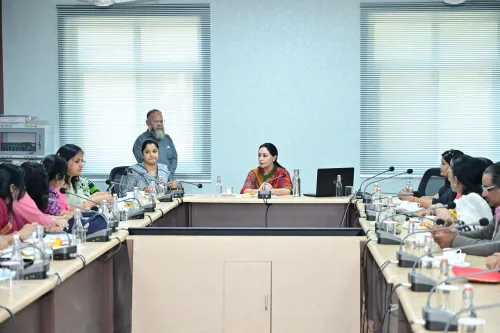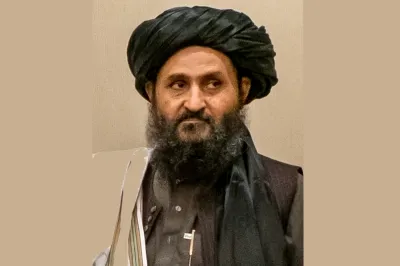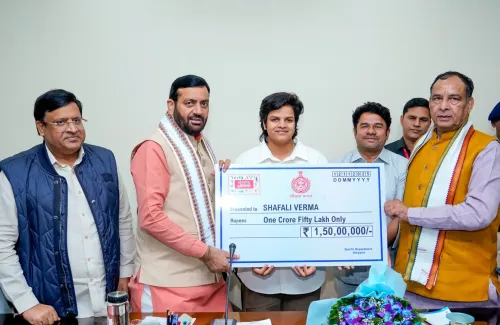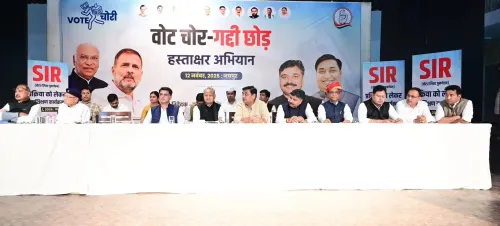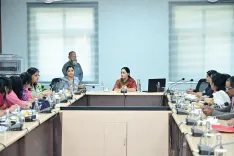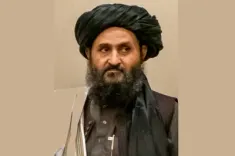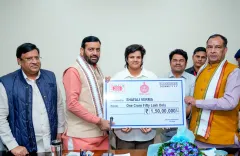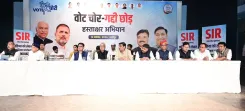Is the CPI(M) Promoting Divisive Politics Based on Religion?
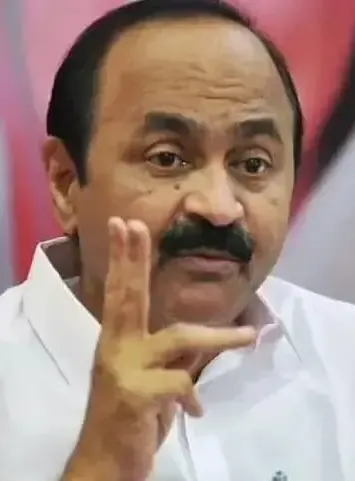
Synopsis
Key Takeaways
- Opposition Leader's Critique: V.D. Satheesan challenges CPI(M) on religious polarisation.
- Commitment to Secularism: UDF emphasizes its dedication to secular governance.
- Community Organizations: UDF respects autonomy but maintains political positions.
- Ayyappa Sangamam Issues: Attendance and management questioned by Satheesan.
- Future Focus: UDF pledges to combat communalism ahead of elections.
Kannur, Sep 26 (NationPress) The Leader of Opposition in the Kerala Assembly, V.D. Satheesan, has expressed strong disapproval of the ruling CPI(M) for purportedly fostering religious division in Kerala. He reiterated the Congress-led UDF’s dedication to secular principles and fair governance.
In a media briefing, he acknowledged the autonomy of community organizations such as the Nair Service Society (NSS) to make decisions, while clarifying that the UDF’s political stance remains distinct.
Satheesan posed three critical inquiries to the government: Is it willing to rectify affidavits endorsing ritual breaches at Sabarimala? Will it retract the numerous cases against participants of the Namajapa procession, NSS members, and political activists? Why has it not withdrawn cases concerning the Ayyappa Sangamam?
The Opposition leader accused the administration of politically exposing “pseudo-devotees” during the recent Ayyappa Sangamam at Pampa.
He pointed out significant organizational issues at the event, noting attendance fell drastically short of the anticipated 4,200, and highlighted the disposal of food worth half a million rupees. He also criticized the event banners for prominently featuring images of Chief Minister Pinarayi Vijayan and other state leaders, despite the event being organized by the Devaswom Board.
Satheesan condemned the public reading of a message from Uttar Pradesh Chief Minister Yogi Adityanath by a state minister, interpreting it as a facilitation of majoritarian political messaging by the CPI(M).
He emphasized that the UDF values its relationships with both the NSS and SNDP (the social wing of the Hindu Ezhavas) and opposes any attempts to introduce communal agendas.
“Our secular stance is unwavering: we stand against divisive politics from both minority and majority factions,” he remarked, asserting that Kerala’s secular ethos is a core principle for the alliance.
Highlighting the CPI(M)’s historical associations with the Muslim League and tolerance of extremist elements, he underscored the UDF’s inclusive approach, promising to combat communal division as parliamentary elections approach.
He concluded by affirming that the UDF will uphold a strong, principled opposition to communalism, champion secular values, and prioritize Kerala’s diverse social fabric over transient political interests.

